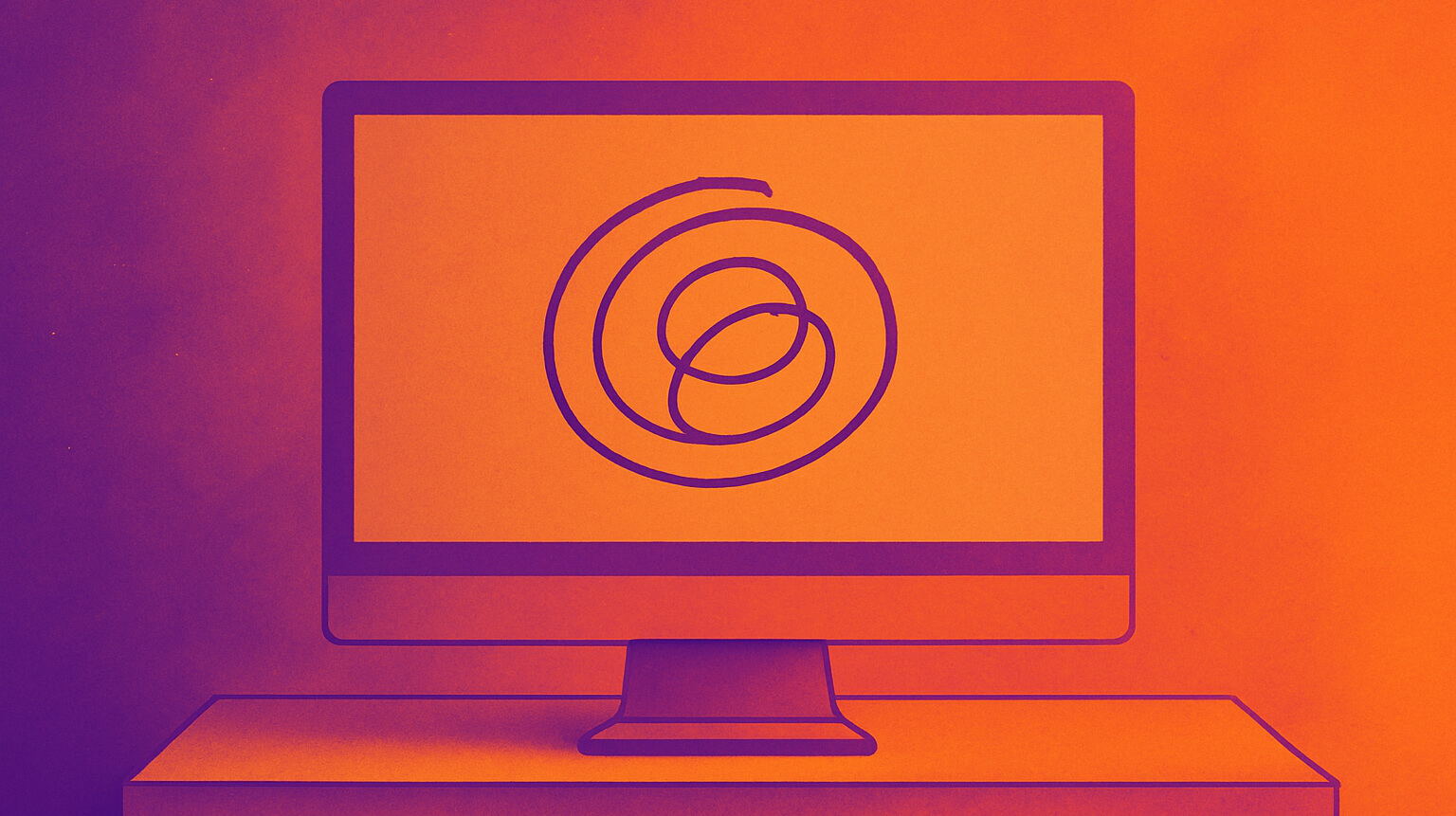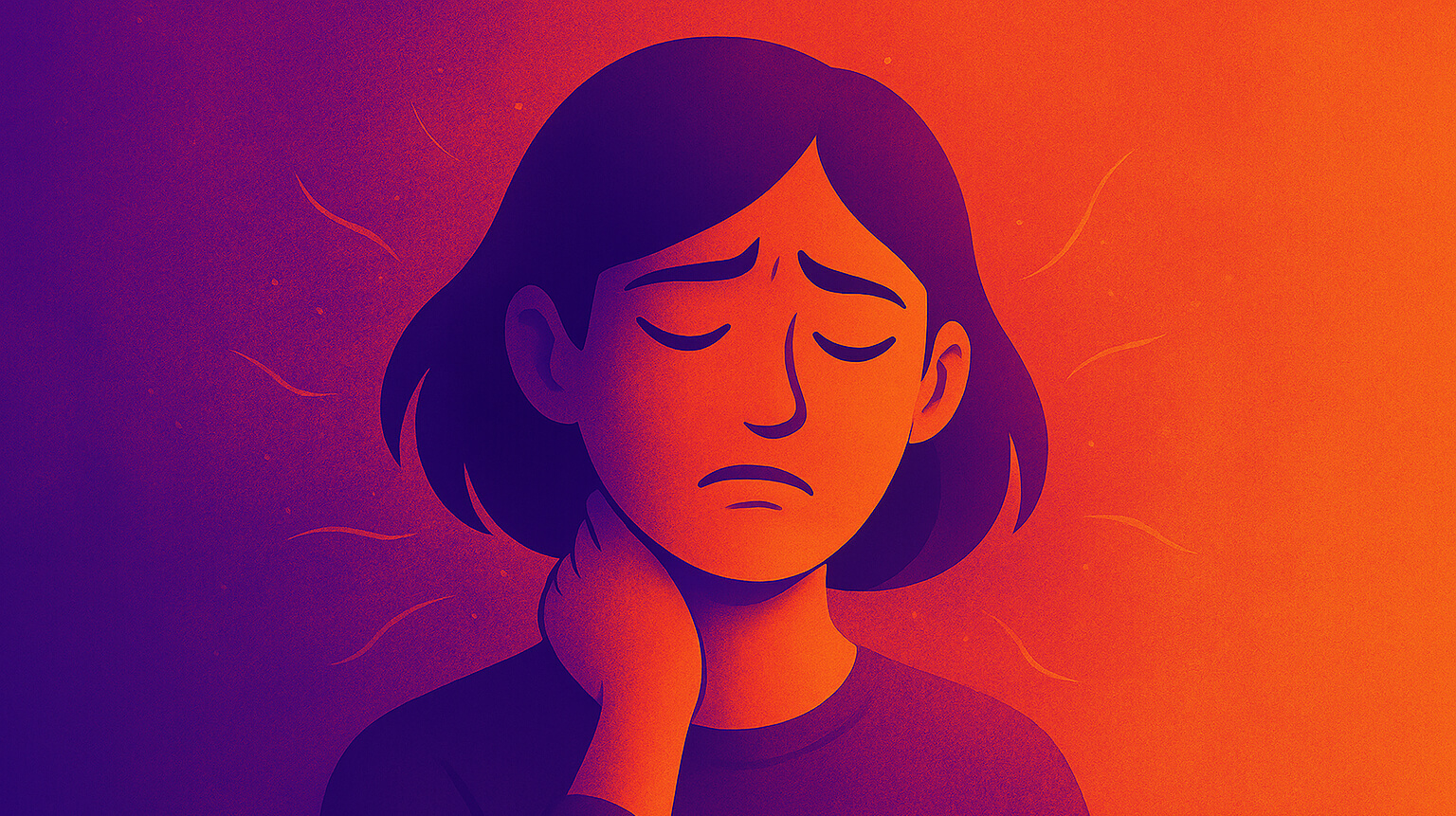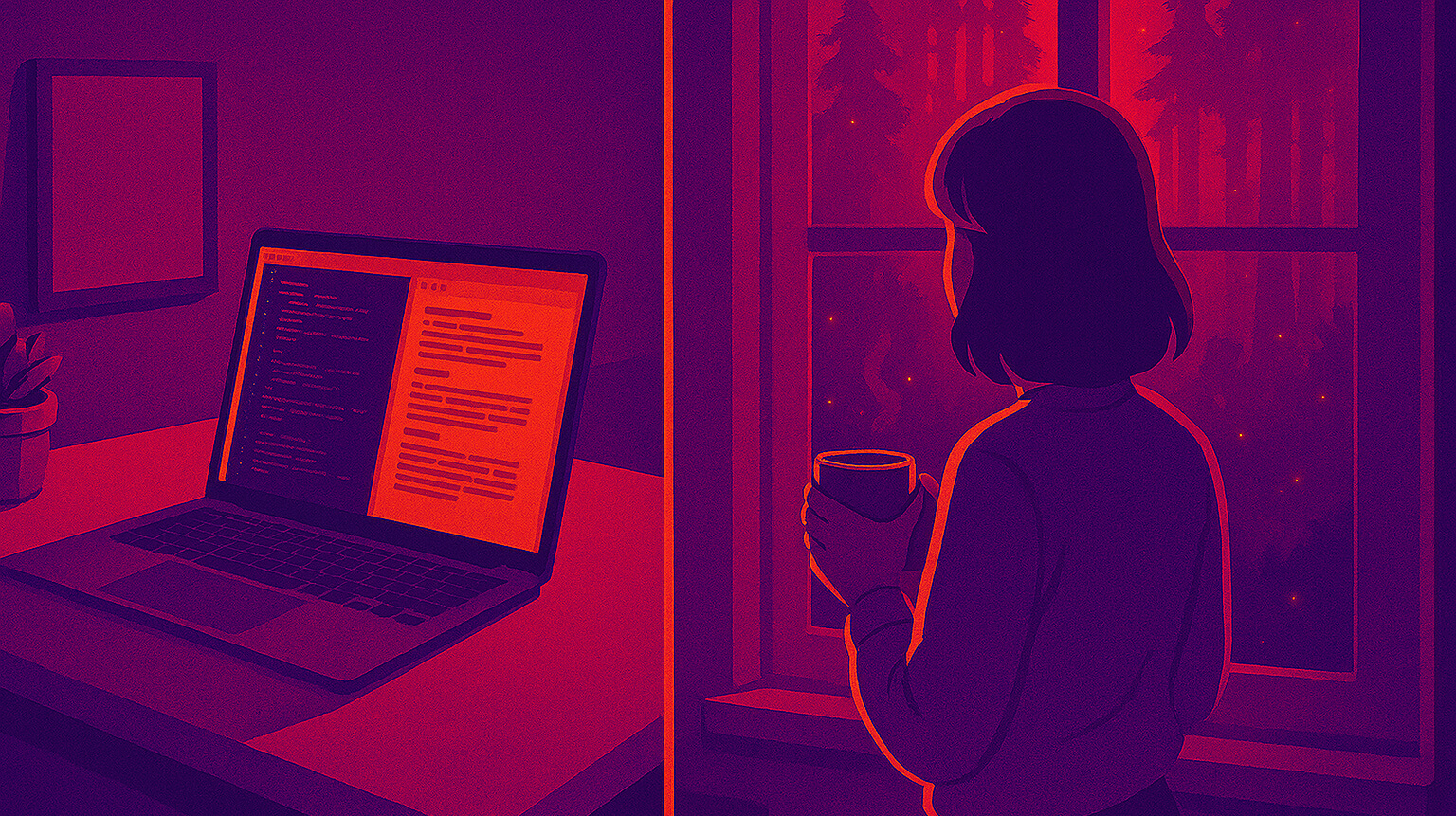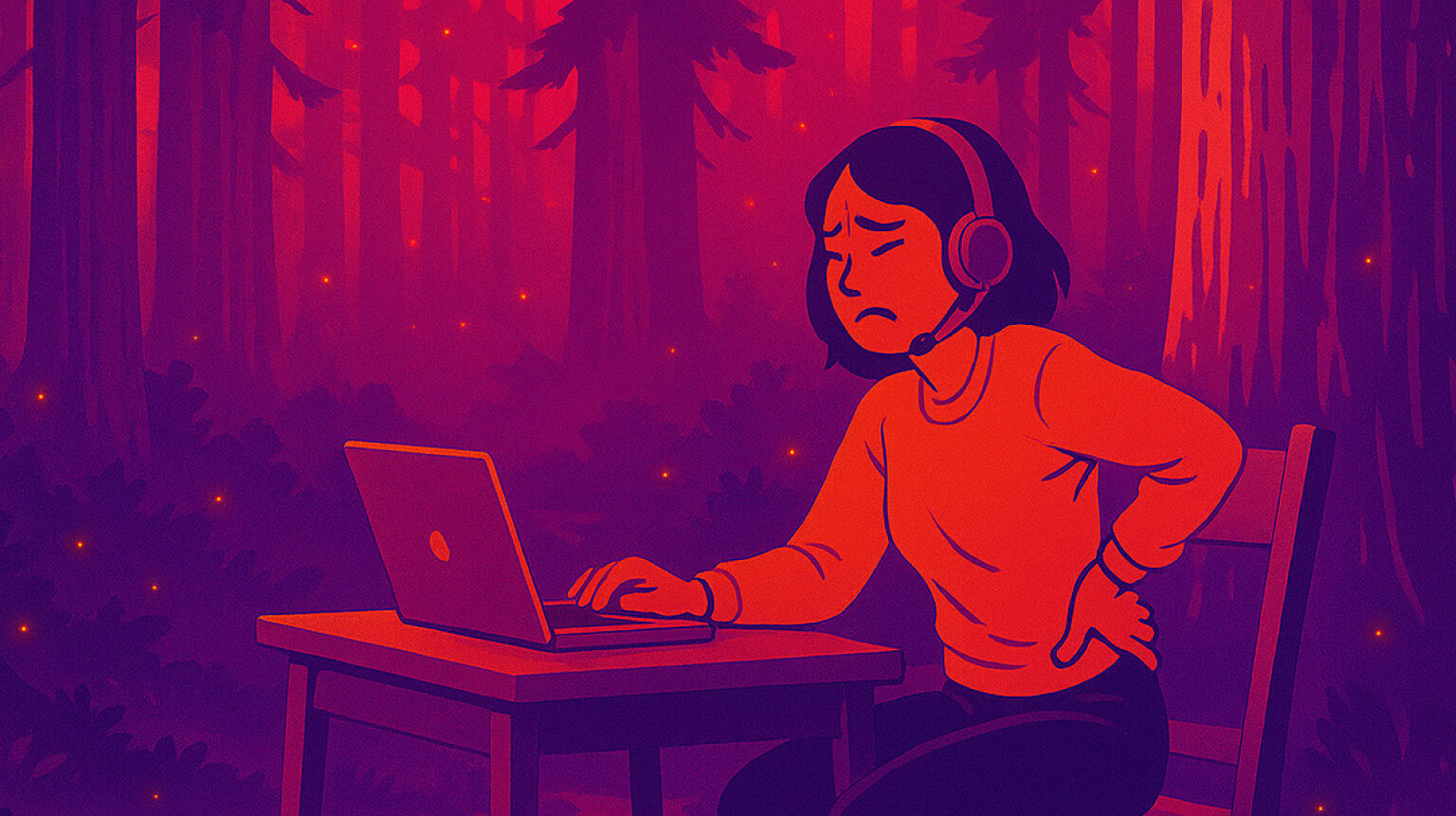I noticed something odd a few months ago. My chest would tighten every time I picked up my phone. Not dramatically, just a subtle squeeze. Then I'd scroll for twenty minutes trying to figure out what I was even looking for.
Turns out there's a name for this: screen time anxiety. And the research on it is fascinating.
What Screen Time Anxiety Actually Is
It's not just "spending too much time on your phone." Screen time anxiety is the specific stress response that comes from our relationship with devices—the constant checking, the inability to disconnect even when we want to, and the guilt that follows.
Unlike the physical symptoms of digital eye strain or tech neck, screen time anxiety attacks your mental well-being directly.
A study from Northwestern University found that 73% of Americans feel anxious when separated from their phones. More concerning: people with high screen time show 2.5 times more anxiety symptoms than moderate users.
But here's what surprised me most—it's not the screen time itself that's the problem. It's how our brains respond to the constant stimulation.
Your Brain on Constant Notifications
Dr. Larry Rosen at California State University discovered something remarkable: every time we check our devices, our cortisol spikes. Not a little—about as much as if we were facing a physical threat.
Think about that. Your brain can't tell the difference between a Slack notification and a predator.
The mechanism works like this:
- Each notification releases a tiny hit of dopamine
- Your brain starts craving these hits constantly
- When you don't get them, cortisol (stress hormone) rises
- You check your phone to relieve the stress
- The cycle continues
After a while, you're not checking your phone because you want to. You're checking because NOT checking feels uncomfortable.
This is similar to what happens with screen fatigue at a neurological level—our brains simply weren't designed for this level of constant stimulation.
How to Know If You Have It
Screen time anxiety shows up in specific ways that are different from general anxiety:
- You feel your phone vibrate when it didn't (phantom vibrations)
- You open apps without remembering why
- You feel guilty about your screen time but can't seem to reduce it
- You get irritable when you can't check your devices
- Time seems to vanish when you're scrolling
Yale researchers in 2024 found that people with three or more of these symptoms had significantly higher anxiety levels overall.
What Actually Helps
I tried a lot of things. Digital detoxes didn't work (I just binged afterward). App timers made me feel worse. What finally helped was understanding that fighting screen time is like holding your breath—eventually, you'll gasp for air.
Instead, here's what research shows actually works:
Scheduled Breaks, Not Restrictions
The Pomodoro Technique research found something interesting: taking a 5-minute break every 25 minutes reduced cortisol by 23%. The key isn't using your phone less—it's interrupting the continuous exposure.
Interestingly, recent productivity research shows that top performers naturally take breaks every 75 minutes, suggesting our bodies know what they need—we just have to listen.
Fix Your Notification Settings
UC Irvine researchers discovered that batching notifications (checking them at set times) reduces anxiety more than trying to respond immediately. Turn off everything except what truly needs immediate attention.
The Morning and Evening Rule
Keep your phone out of your bedroom. I know, I know—it's your alarm. Buy a $10 alarm clock. The research is clear: no screens 30 minutes after waking or 60 minutes before bed dramatically reduces anxiety levels.
This also helps with the well-documented connection between screen time and sleep problems—the blue light and mental stimulation create a double whammy for your circadian rhythm.
When Anxiety Peaks, Ground Yourself
Instead of reaching for your phone when anxious, try this:
- Look around and name 3 objects
- Listen for 3 distinct sounds
- Touch 3 different textures
It sounds simple, but it works by activating the part of your nervous system that calms stress responses.
A Different Relationship with Screens
The goal isn't to quit technology. That's neither realistic nor necessary. The goal is to change how you interact with it.
I still use my phone plenty. But now I notice when I'm reaching for it out of anxiety versus actual need. I take breaks before my brain demands them. I've accepted that some discomfort is normal when changing a habit.
Most importantly, I stopped treating my screen time anxiety as a personal failing. It's a predictable response to an environment we weren't designed for.
If you're dealing with this, you're not broken. Your brain is doing exactly what brains do—adapting to stimuli and seeking rewards. The trick is giving it better patterns to follow.
Need help with structured breaks? LookAway automates break reminders so you don't have to think about them. Because the best way to manage screen time anxiety is to make healthy habits automatic.



